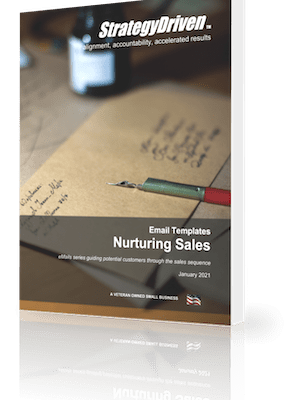5 Reasons Upgrading Your Business’s Entryways Is a Smart Infrastructure Move

When executives talk about infrastructure, they usually picture servers, software, and supply chains. Yet there’s another layer of infrastructure that greets every visitor and employee: the doors. The entryways to your office or shop are more than just hinges and handles; they’re part of a system that shapes safety, energy use, compliance, and first impressions. When was the last time you thought about yours?
Upgrading commercial doors isn’t just a cosmetic project or a quick fix after something breaks. It’s a strategic investment that can pay dividends across multiple areas of your business. Here are five reasons professional door upgrades belong on your infrastructure roadmap.
Security That Goes Beyond Locks
The most obvious role of a door is to keep unwanted visitors out. Modern commercial doors do that and more. They incorporate robust hardware, reinforced cores, and welded frames for maximum strength and security. High‑quality branded doors are designed with precision and durability in mind, blending clean aesthetics with strict specification standards.
Locks are only the beginning. Advanced access control options enable you to issue key cards, codes, or even biometric credentials so that only authorized personnel can enter sensitive areas. For organizations with multiple departments or restricted zones, master key systems provide varying levels of access without a jumble of keys.
According to experts in Commercial Locks and Doors, the right hardware integrates advanced locking systems seamlessly. By investing in top‑tier hardware and professional installation, you reduce the risk of break‑ins while protecting employees and assets.
Energy Efficiency and Sustainability
A drafty entry may not seem like a big deal, but over time, it bleeds money. Properly installed commercial doors help maintain consistent indoor temperatures, reduce strain on HVAC systems, and lower energy consumption. Well‑sealed frames prevent air leakage, eliminating cold drafts in winter and hot spots in summer.
Materials matter too. Steel or insulated wood doors offer better thermal performance than thin aluminum frames. Fire‑rated doors often provide excellent insulation, contributing to both safety and energy savings. When your doorway does its job, your air conditioner doesn’t have to work as hard, your heating bill drops, and your team enjoys a more comfortable environment.
Accessibility and Compliance Are Non‑Negotiable
Beyond security and savings, doors have to meet legal requirements. Building codes and accessibility standards, such as the Americans with Disabilities Act (ADA), require proper clearance, smooth operation, and appropriate hardware. It’s not just about avoiding fines; accessible design opens your business to a broader customer base and signals respect for all visitors.
That’s why companies should treat commercial door installation as a specialized discipline. Professional installers understand local regulations and can recommend solutions like low‑energy automatic operators for easier entry. They ensure door closers are calibrated to prevent slamming and that thresholds are compliant with mobility requirements. Cutting corners here risks costly retrofits down the road.
Durability Saves Money in the Long Run
Cheap doors may look fine at first, but constant repairs and premature replacements add up. High‑quality commercial doors are designed for heavy use; they feature reinforced cores, concealed hardware and welded frames.
On the Goclad site, the team notes that entry doors are often built with temperature‑rise ratings for enhanced fire protection and are primed for final finish treatments. Proper handing ensures smooth operation, while integrated advanced locking systems deliver dependable performance in any setting.
Maintaining doors properly extends their life even further. Regular cleaning prevents dirt buildup, checking hinges and locks ensures smooth operation and occasional lubrication reduces wear. A durable door and a proactive maintenance schedule mean fewer emergencies and a lower total cost of ownership.
Aesthetics and Brand Image
First impressions matter. When customers walk through your door, they form an opinion about your business before you even say hello. Commercial doors come in a variety of materials and styles to match your brand’s personality. Wood doors provide warmth and a professional look; glass doors allow light to flow and create an open feel; laminate or hybrid options offer durability with design flexibility.
The visual impact isn’t just about exterior entries. Interior doors in offices, conference rooms, break rooms and employee entrances, also influence how your space functions and feels. Properly planned interior commercial doors provide privacy, noise control, and a cohesive look. Conference room doors with sound insulation and frosted glass keep meetings confidential while maintaining a modern aesthetic. Employee entrances equipped with keycard access, fire‑rated materials and smart access integration balance security with convenience.
Thoughtful design conveys professionalism and builds trust. Align your door style with your brand: sleek glass for modern tech firms, wood for traditional law offices, and heavy‑duty steel for industrial spaces. Your entryways tell a story; make sure it’s the right one.
Looking Ahead
Doors might not be as glamorous as data centers or robotics, but they are a vital part of your company’s infrastructure. Investing in robust security hardware, energy‑efficient seals, compliant installations, durable materials, and cohesive design pays off in safety, savings, and customer perception. In a world where details matter, your doors aren’t just barriers; they’re an invitation to the values and professionalism inside.













Leave a Reply
Want to join the discussion?Feel free to contribute!